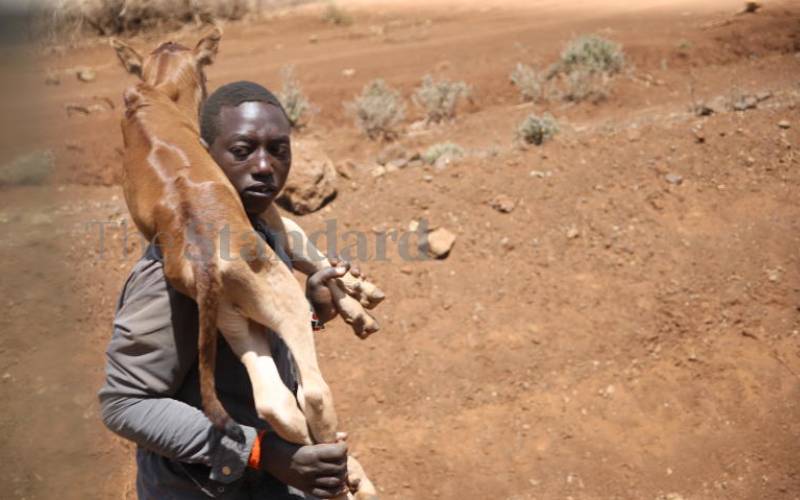×
The Standard e-Paper
Join Thousands Daily

Kenya faces a crisis should the short rains between October and December fail. [Wilberforce Okwiri, Standard]
Experts have warned that the drought situation in Kenya could turn into an emergency should the country fail to receive enough rain in the next few weeks.